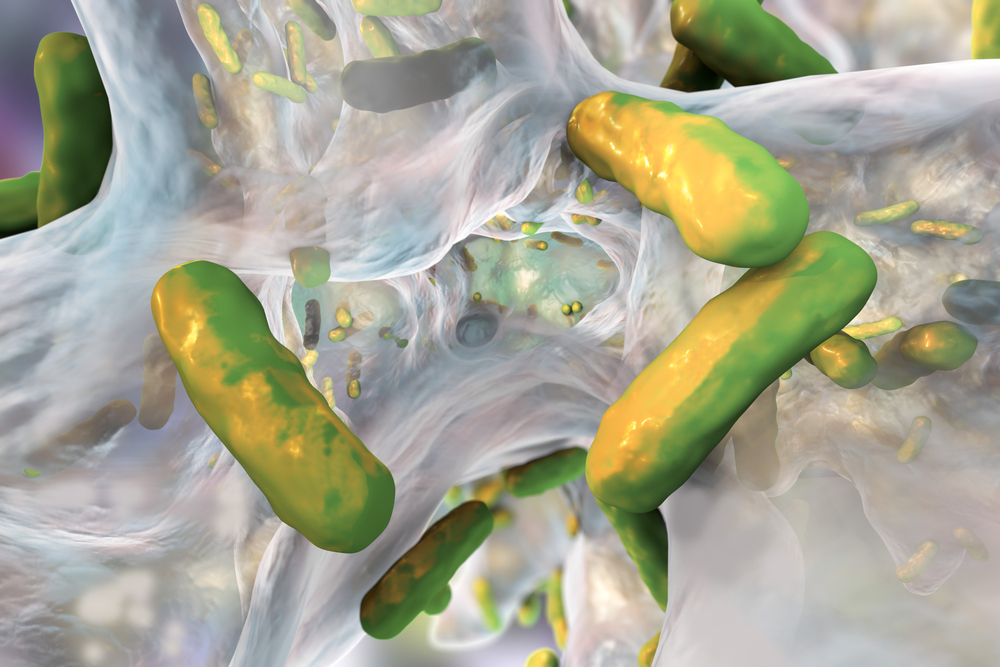Phage Treatment Shows Efficacy Against Biofilms of Resistant Bacteria in Early Study
Written by |

Preclinical data shows that AB-PA01 can reduce biofilms produced by the bacteria Pseudomonas aeruginosa, a major cause of lung infections in cystic fibrosis patients, scientists report.
The study, “Activity of Bacteriophages in Removing Biofilms of Pseudomonas aeruginosa Isolates from Chronic Rhinosinusitis Patients,” was published in the journal Frontiers in Cellular and Infection Microbiology.
Bacteriophages, also known as phages, are natural predators of bacteria, and several phage strains are known to attack specific and biologically-related bacteria. Phage-based therapies may allow for better targeting of “bad bacteria” — especially those resistant to antiobiotics — while sparing beneficial bacteria, according to the AB-PA101’s developer, AmpliPhi Biosciences.
Phages have the ability to infect and kill bacteria in the presence of protective biofilms. Biofilm is a slimy layer produced by bacteria that covers and works to protects them from external threats, like antibiotics.
The sticky mucus that accumulates in cystic fibrosis (CF) leaves patients at risk of serious and chronic infections, often caused by resistant bacteria.
The research team tested AB-PA01, which contains four specific phages, on samples of P. aeruginosa biofilms.
Bacteria isolates from people on three continents with the sinus condition known as chronic rhinosinusitis, including some who also had cystic fibrosis, were first analyzed, sequenced, and tested for antibiotic resistance. Bacterial biofilms grown in the lab were then treated with AB-PA01, and their biomass measured 24 and 48 hours later.
Results showed that AB-PA01 significantly reduced biofilm biomass at both time periods, regardless of a patient’s past history of antibiotic resistance and the presence of cystic fibrosis.
“Pseudomonas aeruginosa infections are prevalent among chronic rhinosinusitis sufferers and many strains form difficult-to-penetrate biofilms, leading to treatment failure, Paul C. Grint, the CEO of AmpliPhi Biosciences, said in a press release. “In this in vitro study, a single dose of AB-PA01 significantly reduced biofilms. Furthermore, AB-PA01 was shown to be active against 89% of the P. aeruginosa isolates tested.”






